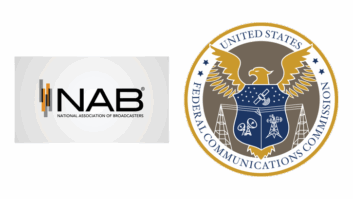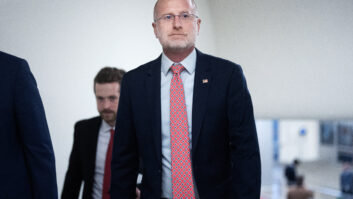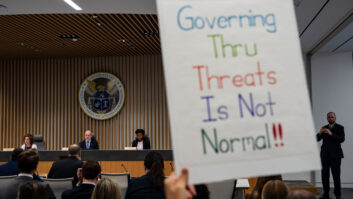FCC hedges bet on gambling advertising
May 1, 2006 12:00 PM, By Harry Martin
Federal laws on the advertising of lotteries and casino gambling appear to be straightforward. Title 18 U.S.C. �1304 provides that it shall be a criminal offense to permit the broadcasting of any advertisement of �any lottery, gift enterprise or similar scheme.� This prohibition is generally understood to include not only lotteries and casino gambling, but also any activity in which anything of value is given for a chance to win another thing of value.
Based on this statutory mandate, Section 73.1211 of the FCC’s rules prohibits broadcasters from broadcasting any advertisement for �any lottery, gift enterprise or similar scheme,� with a few important exceptions. First, the prohibition does not apply to lotteries conducted by states where the station broadcasting the advertisement is located within a state that conducts such a lottery. The rules also provide an exception for lotteries and other activities permitted by state law and conducted by non-for-profits or as an incidental promotional activity by commercial organizations. Also excepted are non-profit fishing contests. Most significantly, gaming activities conducted by Indian tribes pursuant to federal law may be advertised.
Thus, the rules on their face permit the advertising of certain casino activities (when conducted by Indian tribes) but they still prohibit the advertising of precisely the same activities (when, say, Indians aren’t involved).
Reaching conclusions
Due in part to these inconsistencies, a U.S. District Court for New Jersey concluded, in Players International, Inc. v. U.S., that the federal prohibitions on the advertising of casino gambling failed to pass First Amendment scrutiny. In early 1998, the government appealed that decision to the U.S. Court of Appeals for the Third Circuit. In 1999, however, while the Players appeal was pending, the Supreme Court decided that advertising private casino gambling could not be prohibited in states in which such gambling is legal, whether or not Indians were involved. In light of the Supreme Court’s decision, the Department of Justice (DOJ) filed to withdraw its appeal of the Players case and notified Congress that the DOJ would not continue to defend the constitutionality of Section 1304 as applied to truthful broadcast advertising for lawful casino gambling.
Thus, it would appear that broadcasters can air truthful advertising for lawful casino gambling, regardless of where the broadcaster is located. But in 1999 the FCC issued a Public Notice that referred to the Justice Department’s actions but did not explicitly take the same position with respect to the effect of Section 73.1211 of the FCC’s rules. Instead, the FCC promised that it would re-evaluate the matter following the Third Circuit’s disposition of the Players case.
The Third Circuit dismissed the Players case in 2000, but the FCC has yet to revisit the subject. Thus, broadcasters are left with the fact that the FCC has never officially disavowed its rules restricting casino advertising, even though the Justice Department expressly disavowed the underlying federal statute. This creates an odd situation in which the FCC’s rules on their face expressly prohibit conduct which the DOJ has concluded is perfectly legal, and the DOJ’s position is bolstered by no less an authority than a Supreme Court’s ruling. And the FCC’s own 1999 public notice might reasonably be read as the Commission’s effort to publicly disavow its rule (even if the notice in fact stopped short of doing precisely that). That conclusion could reasonably be drawn from the fact that the FCC has not enforced the rule since that public notice.
But the fact remains that the FCC, whether through bureaucratic inertia or otherwise, has left the rule on the books. As a practical matter, lawyers are reluctant to counsel their clients to ignore rules that are still included in the FCC rule book. But if there were ever any inclination to provide such counsel, this would certainly be an obvious place for it. The combination of factors at work here strongly indicates that this rule is a dead letter, unlikely to be enforced again.
Dateline:
July 10 is the deadline for radio stations in all states to place their quarterly lists of issues and programs in their public files for the period April 1 to June 30, 2006.
Aug. 1 is the due date for biennial ownership reports for radio stations in Illinois and Wisconsin.
Aug. 1 is the deadline for radio stations in the following states to place their annual EEO public file reports in their public files and place them on their websites: California, Illinois, North Carolina, South Carolina and Wisconsin.
Martin is immediate-past president of the Federal Communications Bar Association and a member of Fletcher, Heald & Hildreth, Arlington, VA. E-mail[email protected].







